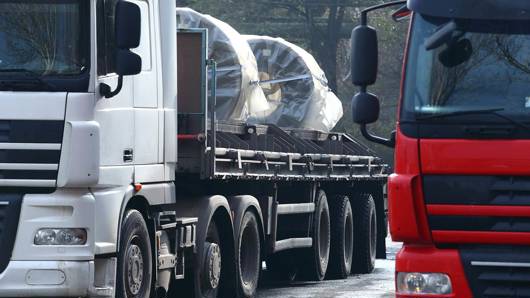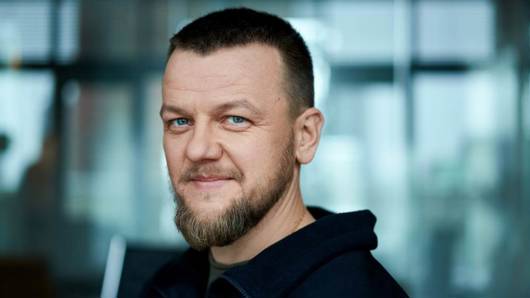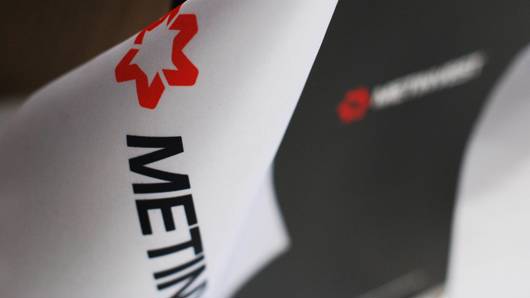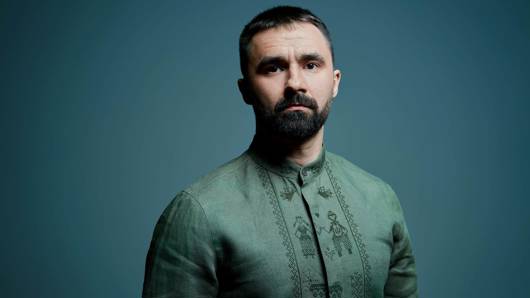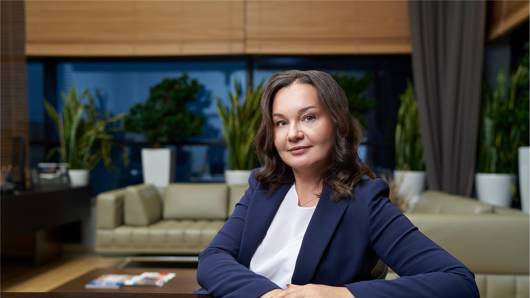How does the largest employer in Ukraine’s steel industry keep its teams energised? Oleksandr Myronenko, chief operating officer of Metinvest Group, talks about this in a Forbes article titled “Antidote to Burnout. How two years of war have affected tens of thousands of employees of industry and IT sector leaders. Cases and advice from Metinvest and EPAM top executives.” Below is an adapted and shortened version of the original article that reflects Metinvest’s position.
Since the start of the full-scale invasion, Metinvest, Ukraine’s largest private group, has lost two-thirds of its estimated value. Two plants – Azovstal and Ilyich Steel – have been occupied. The team of nearly 60,000 employees is working with full dedication despite constant shelling and power outages.
Olena Bondar, CEO of Wellbeing Company, believes that no one in Ukraine is spared from exhaustion. She asked Myronenko how the Group maintains morale. Spoiler: The key challenge for post-industrial businesses in Ukraine is mental health, while that for industrial businesses is survival.
Build an anti-burnout culture
– To me, Metinvest seems like a small map of Ukraine, where all possible challenges have come together. Oleksandr, does the Group face any divisions based on values? How do you unite people?
– Before the war, our culture was focused on efficiency. We created motivational tools ranging from financial and cultural to sport: festivals and competitions. All this faded into the background after 24 February 2022.
We acted according to five priorities: sustainable operation of our companies, safety of fixed assets and employees, interaction with the cities where our enterprises operate, and assistance to the Ukrainian defence forces. We switched the management of all our assets to 24/7 operation.
We stopped Ilyich Steel and Azovstal in Mariupol almost immediately. We supplied the bomb shelter with food, which allowed Azovstal to hold out for so long. When Mariupol was surrounded, with almost 40,000 of our employees remaining, we organised humanitarian convoys from Zaporizhzhia to the nearest cities in the controlled area that were within reach. From there, we evacuated civilians.
– You talk about unity around action. But living like this for long is impossible, as there are consequences for people and organisations. What is the way forward?
– Perhaps these consequences have not yet reached us because we continue to operate in this mode. There is a vector to restore production and increase efficiency, as well as additional opportunities to earn money. We are introducing collective bonuses and resuming small-scale investments.
– What is the future for Metinvest’s people?
– People associate the future with stable production and investments in the renewal of production assets. Currently, we cannot talk about it from the long-term perspective. But after the war, we will have green steel and modernised production facilities that reduce our environmental footprint.
We are focusing on the fact that we must work, preserve our enterprises and staff, and attract new employees because we have a lot of mobilised people.
Where to find energy
– Antifragility is the ability of living systems not only to adapt to stress, but also to become stronger. How have Metinvest and its leaders adapted to the war?
– Our experience of stressful changes has been ongoing since 2014, so we have adapted to some extent. However, I have never seen such unity as in the past three years. The top team advises what to do at the enterprises. Enterprises can easily discuss management gaps and recommend how to improve. This is always heard, and a certain amount of freedom of action is given.
We have learned to adapt to blackouts, gas supply interruptions, rebuilding logistics routes and missile attacks. People eliminate the consequences with great speed. In civilian life, it took up to a week to restart a blast furnace, but now it takes a day or two.
– Where do they find such strength?
– Every team is fighting for existence. Mariupol is on everyone’s minds. At the beginning of March 2022, people arrived from there with nothing but their sweatpants, found jobs and started over from scratch.
Everyone knows exactly what will happen if the ‘Russian world’ reaches a certain asset. Employees know that their families live in this city, they have jobs, but all this can vanish within weeks. That’s why they fight for efficiency, for preserving jobs and the team. This is a source of energy.
– But what if the fear of losing everything is not enough? If a person burns out, and it’s impossible to replace them, does the employee have the opportunity to rebuild themselves?
– Yes, through communication within teams. We have 50,000 active employees: miners and metallurgists. They motivate each other. Everyone enjoys what they do – from construction work on fortifications near the “zero line” to production results.
The importance of personal resilience
– We have talked about the organisational culture. Now let’s talk about specific people. Oleksandr, what sustains you?
– The opportunity to be at the production site: to ensure the functioning of the sites, to achieve results, to provide people with jobs, to help them solve urgent issues.
Second, to support the Ukrainian defence forces. We purchase the necessities for the brigades, such as drones, and increase the country’s defence capability. We have set up production of shelters, mine trawls and protection for machine gunners. This makes our employees’ eyes light up. One of our employees cannot serve due to his age. He works on an excavator, digging dugouts and trenches. Once, he shot down an enemy drone with a rifle. It is important for me to work for such great people, to create conditions for them. There is another side – my family. Five months ago, my third child, a daughter, was born.
– How do you work with your body?
– I go for a run every day. Going to the gym and running 10 km a day helps me recharge. I have not taken leave and do not plan to for now.
– What will change for you when peace comes?
– I will go to the mountains and go snowboarding. I don’t think much will change at work. I believe that the military zeal will transition into restoration, rebuilding, investment and reconstruction of our enterprises. We have plans, and we are waiting for the end of the war to start implementing them.
Steel will be the basis for restoring all damaged infrastructure, buildings and power plants. Changing the focus from supporting the Ukrainian defence forces to supporting the Group and the country will be a key challenge.
– What will happen to the people?
– 8,000 veterans will return. New people with combat experience will join us. We will need to create a new team that will be a fusion of civilians and former military. This is a slightly different culture. But the production culture is similar to that of the army in terms of discipline, responsibility and risks. We will find common ground, and it will be easier for us.
We have learned from the US experience of caring for veterans. We will use this knowledge while building our own system of relations with veterans and the staff who worked during the hostilities at the enterprises.
People will be a key challenge for all companies. We will need to constantly share practices – the way veteran communities work and how they adapt people to peaceful life.






